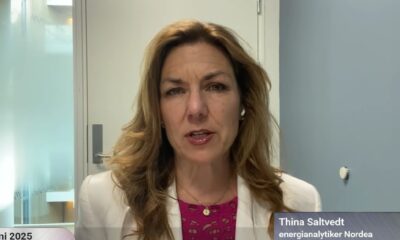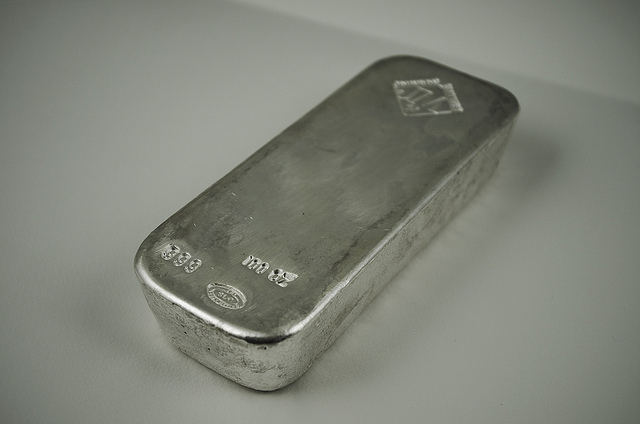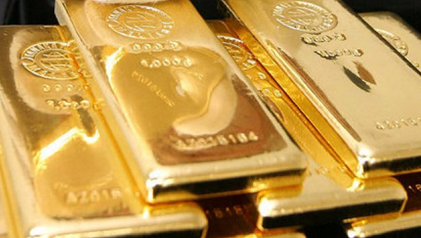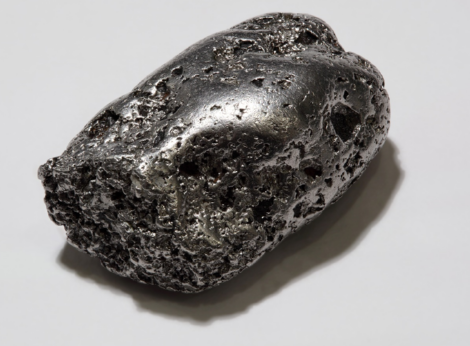Nyheter
The real lesson of Barclay’s fine

 On Friday 23 May news broke that Barclays Bank had been fined 26 million pounds, nearly $44 million, in a case related to a trader who pushed the gold price lower at the fix on 28 June 2012. The trader, Daniel Plunkett, had $43 million in two-year-old gold options that he had sold to a client which were coming close to being in the money; he placed a 60,000 ounce sell order at the fix to try to keep the price from rising to a level at which the options would be in the money.
On Friday 23 May news broke that Barclays Bank had been fined 26 million pounds, nearly $44 million, in a case related to a trader who pushed the gold price lower at the fix on 28 June 2012. The trader, Daniel Plunkett, had $43 million in two-year-old gold options that he had sold to a client which were coming close to being in the money; he placed a 60,000 ounce sell order at the fix to try to keep the price from rising to a level at which the options would be in the money.
News of the penalty to Barclays set tongues wagging. The news comes out amid a great deal of confusion over the demise of the silver fixing and the need to replace it as a benchmark silver price; ongoing restructuring of the bullion banking business; and a rise in the shrill commentary about the London precious metals fixes being consistently manipulated and distorted.
The last point misses the real lesson of the Barclays’ fine.
Barclays was not fined for trying to manipulate the gold fix, nor for successfully doing so. Barclays was fined for lack of supervision of a gold trader who tried to manipulate the fix one day in 2012.
People who apparently know virtually nothing about how precious metals trade have made a cottage industry out of claims that the dealers in the inner ring of the fix have an undue advantage, being able to profit by trading based on their knowledge of the volumes of buy and sell orders they are receiving from clients. One recent suit alleging silver fix price manipulation was just thrown out of U.S. courts for lack of evidence, but that has done nothing to stop the business. The Barclay’s incident points to the extent to which this is not really the case, however.
The key point is that Barclay’s gold traders participating in the fix did not know what their own gold options trader was doing, let alone what their outside clients were doing. So much for coordinated manipulation across the decades.
One trader succeeded one day to push the gold price down and went undetected by his own trading colleagues at his bank. When the client complained Barclays investigated, made the client whole, and let the trader go. In the ensuing two years it also apparently has put in place systems to protect against employees doing such things again and going undetected. Those do not sound like the actions of a bank systematically gaming the fix.
Perspective
In the middle of the 1980s a Drexel Burnham broker in southern Florida named Ted Butler manipulated the frozen and concentrated orange juice market, creating an unregistered pool of his clients money that he traded on a coordinated basis to control orange juice prices. (This was prior to the movie Trading Places.) The CFTC spotted the strange trades, investigated, and came after both the broker and Drexel. Drexel paid a fine for nonsupervision and let Butler go. Trying for leniency with the CFTC, Butler offered to show the CFTC on-going misfeasance in the silver market by Drexel.
The CFTC investigated, and found two matched trades which Drexel had undertaken with another dealer in order to allow the other dealer to square its silver books at the end of the trading day, so that it was completely hedged overnight.
Drexel paid a fine for those two trades. Permanently banned from the futures industry as a result of his orange juice caper, Butler became the voice crying out against silver market manipulation, first by Drexel, then Merrill, and later JP Morgan over the past 26 years or so. He is the source of the thought that banks have massive uncovered short positions. Interestingly, the fact that dealers used match trades back then to square their books at the end of each day points to the fact that banks run hedged books.
So now we know of three people who have been banned permanently from commodities trading. One is Butler, who has spent his life since being banned alleging that the silver market is manipulated. The second is Bill Murphy, who was banned in the early 1990s and went on to be one of the founders of GATA, spending the rest of his life alleging that the gold market is manipulated.
And now we have Daniel Plunkett, who tried to hit the gold fix one day. We doubt Mr. Plunkett will follow his predecessors’ examples and try to set himself up as an expert on market manipulation, blaming others with no real evidence to support any accusations, but his one-day action has given them fuel to keep their cottage conspiracy theory industry alive for a while longer.
[box]Denna analys är producerad av CPM Group och publiceras med tillstånd på Råvarumarknaden.se.[/box]
Disclaimer
Copyright CPM Group 2012. Not for reproduction or retransmission without written consent of CPM Group. Market Commentary is published by CPM Group and is distributed via e-mail. The views expressed within are solely those of CPM Group. Such information has not been verified, nor does CPM make any representation as to its accuracy or completeness.
Any statements non-factual in nature constitute only current opinions, which are subject to change. While every effort has been made to ensure that the accuracy of the material contained in the reports is correct, CPM Group cannot be held liable for errors or omissions. CPM Group is not soliciting any action based on it. Visit www.cpmgroup.com for more information.
Nyheter
Ryska staten siktar på att konfiskera en av landets största guldproducenter

En våg av panik sprider sig bland Moskvas elit sedan Vladimir Putins regim inlett en dramatisk offensiv för att beslagta tillgångarna hos Konstantin Strukov – en av Rysslands rikaste affärsmän och ägare till landets största guldgruvföretag, Yuzhuralzoloto. Åtgärden ses som ett tydligt tecken på hur långt Kreml är villigt att gå för att säkra ekonomiska resurser i takt med att kostnaderna för kriget i Ukraina stiger.
Strukovs förmögenhet, som uppskattas till över 3,5 miljarder dollar, byggdes upp under decennier i nära relation med maktens centrum i Ryssland. Men den 5 juli stoppades hans privatjet från att lyfta mot Turkiet. Enligt flera ryska medier deltog den federala säkerhetstjänsten FSB i ingripandet, och Strukovs pass beslagtogs. Händelsen ska vara kopplad till en omfattande rättsprocess där åklagare kräver att hela hans företagsimperium förverkas – med hänvisning till påstådd korruption och användning av skalbolag och familjemedlemmar för att dölja tillgångar.
Företaget själva förnekar att något inträffat och kallar rapporteringen för desinformation. De hävdar att Strukov befann sig i Moskva hela tiden. Trots det bekräftar rättsdokument att både han och hans familj förbjudits att lämna landet, och att myndigheterna snabbt verkställt beslutet.
Det som nu sker är en del av ett större mönster i ett Ryssland präglat av krigsekonomi: staten tar tillbaka kontrollen över strategiska sektorer som guld, olja och försvarsindustri – industrier som nu allt mer mobiliseras för att finansiera och stödja krigsinsatsen. Intressant nog handlar det inte om att Strukov ska ha varit illojal mot regimen – tvärtom har han varit en lojal allierad, med politiska uppdrag knutna till Putins parti. Men lojalitet räcker inte längre som skydd.
Medan tidigare utrensningar ofta riktade sig mot krigskritiker eller de som flydde landet, drivs dagens tillgångsövertaganden av något mer fundamentalt: ekonomisk nöd. De växande sanktionerna har nästan helt strypt inflödet av utländskt kapital. Statens oljeintäkter minskar och budgetunderskotten växer. Putins lösning är att vända sig inåt – till de oligarker han själv lyfte fram – för att fylla statskassan.
Det här är inte ett enskilt fall. På senare tid har flera framstående affärspersoner hamnat i plötsliga rättsliga tvister, omkommit under mystiska omständigheter eller sett sina bolag tas över av staten. Den oskrivna överenskommelsen som länge gällde i Putins Ryssland – rikedom i utbyte mot lojalitet – håller på att kollapsa.
Den 8 juli väntar en rättsförhandling som kan avgöra framtiden för Strukovs affärsimperium. Men budskapet till Rysslands näringslivselit är redan tydligt: ingen är för rik, för lojal eller för nära den politiska makten för att gå säker. I ett Ryssland där kriget kräver allt större uppoffringar riskerar oligarker att snabbt förvandlas till måltavlor.
Nyheter
Hur säkrar vi Sveriges tillgång till kritiska metaller och mineral i en ny geopolitisk verklighet?

När världsläget förändras ställs Europas beroende av metaller och mineral på sin spets. Geopolitiska spänningar, handelskonflikter och ett mer oförutsägbart USA gör att vi inte längre kan ta gamla allianser för givna. Samtidigt kontrolleras en stor del av de kritiska råvarorna vi är beroende av av andra makter – inte minst Kina. Vad händer med Sveriges industriella förmåga i ett läge där importen stryps? Hur påverkas försvarsindustrin av Kinas exportrestriktioner? Är EU:s nya råvarupolitik tillräcklig för att minska sårbarheten – eller krävs ytterligare statliga insatser och beredskapslagring? Svemin anordnade den 25 juni ett seminarium som bestod av bestod av deltagare från myndigheter, politik och industri. Man diskuterar Sveriges och EU:s strategiska vägval i en ny global verklighet – och vad som krävs för att säkra tillgången till metaller när vi behöver dem som mest.
Nyheter
Lundin Mining ska bli en av de tio största kopparproducenterna i världen

Lundin Mining är bolaget i Lundin-sfären som satsar stort på Vicuña-projektet i Argentina. Det ska lyfta Lundin Mining till att bli en av de tio största kopparproducenterna i världen skriver Affärsvärlden och upprepar sin köprekommendation för aktien.
”Även om en framgång inte är på förhand given tror vi att Vicuña har goda chanser att bli bra. Vi förnyar vårt köpråd för Lundin Mining”
Enligt Lundin Minings ledning kommer man att klara att finansiera sin del av investeringarna i Vicuña genom det löpande kassaflödet som man förväntar sig ska bli omkring 5 miljarder dollar kommande fem år i kombination med lån.
-

 Nyheter4 veckor sedan
Nyheter4 veckor sedanStor uppsida i Lappland Guldprospekterings aktie enligt analys
-

 Nyheter4 veckor sedan
Nyheter4 veckor sedanSilverpriset släpar efter guldets utveckling, har mer uppsida
-

 Nyheter3 veckor sedan
Nyheter3 veckor sedanUppgången i oljepriset planade ut under helgen
-

 Nyheter2 veckor sedan
Nyheter2 veckor sedanMahvie Minerals växlar spår – satsar fullt ut på guld
-

 Nyheter3 veckor sedan
Nyheter3 veckor sedanLåga elpriser i sommar – men mellersta Sverige får en ökning
-

 Analys3 veckor sedan
Analys3 veckor sedanVery relaxed at USD 75/b. Risk barometer will likely fluctuate to higher levels with Brent into the 80ies or higher coming 2-3 weeks
-

 Nyheter2 veckor sedan
Nyheter2 veckor sedanOljan, guldet och marknadens oroande tystnad
-

 Nyheter2 veckor sedan
Nyheter2 veckor sedanJonas Lindvall är tillbaka med ett nytt oljebolag, Perthro, som ska börsnoteras
















